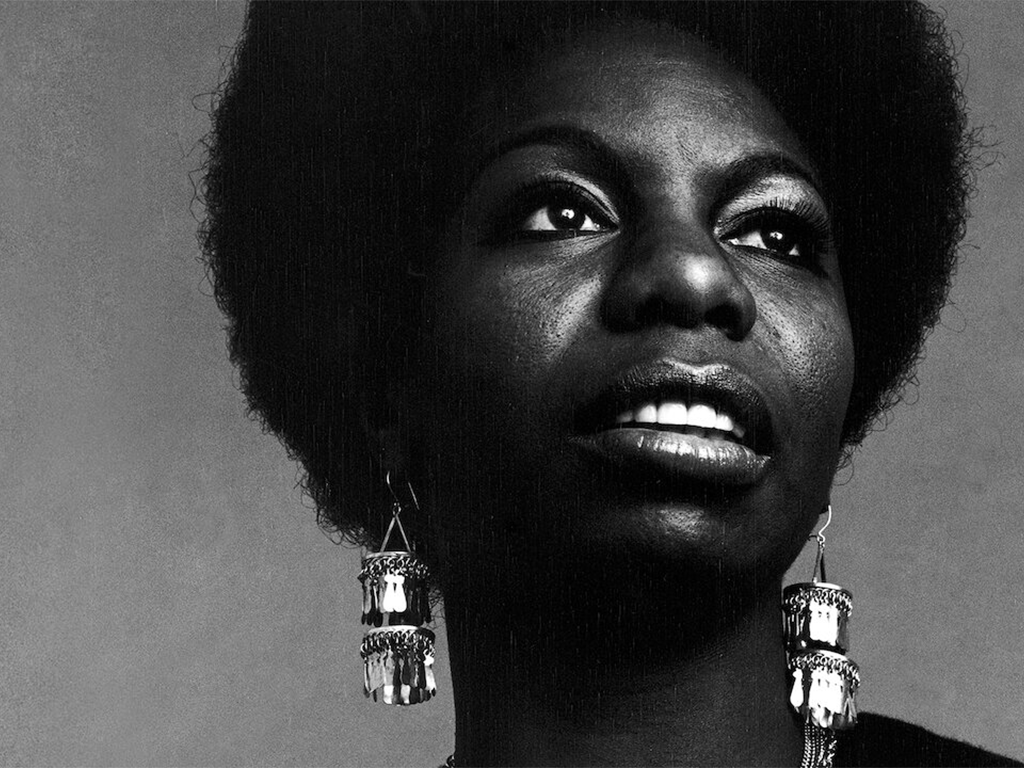Vibe:
"What Happened, Miss Simone?" is a somewhat cookie-cutter documentary about a fascinating, complicated person with immense talent and passion. Comprised mainly of performance footage, snippets from Nina Simone's diary, primary interviews, and a few unnecessary childhood recreations, it's all standard music documentary fare, but infinitely worthwhile.
There are some problematic aspects, which I'll discuss later, but I think Liz Garbus deftly handles most of the material and leaves the viewer with a portrait of a person who could have been unnecessarily simplified to serve a particular narrative.
Best time to watch:
Whenever you feel like taking a dip in the pool of someone else's life. This documentary contains footage I had never seen before and for that alone I'm happy I watched. Simone's involvement in the civil rights movement is inspiring, especially in the time of Trump and the rise of modern white nationalism. She had a prominent career and leveraged her platform to celebrate Black people and draw attention to racial injustice.
She was penalized for her activism and had a difficult time booking gigs after "Mississippi Goddamn." Her involvement with the Selma March and associations with more radical figures from the movement also didn't help her commercial career. Simone didn't give a single fuck about the ramifications. While non-stop tours left her exhausted, her activism didn't affect her in the same way. She said, “I don’t mind going without food or sleep as long as I am doing something worthwhile to me such as this.” Damn straight.
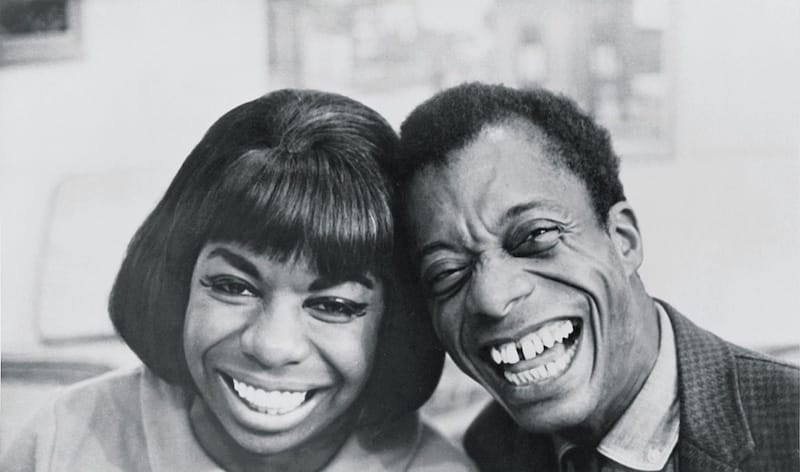
I wish more public figures would use their platform to draw attention to problems in the world. Time's Up and Me Too are nice to see, but I want more. I want less politeness and more outrage. Feminists should study Simone and take a few notes out of her book. I tend to agree with Jessa Crispin on the popular empowerment feminism we're seeing more frequently these days (think Lena Dunham and the pink pussy hats from the Women's March):
"The feminism I support is a full on revolution. Where women are not simply allowed to participate in the world as it already exists ... but are actively able to reshape it."
I disagree with Crispin about many things, but this particular point is one I wholeheartedly support.
Worst time to watch:
When you're not feeling a music documentary. I'll be honest: they all kind of seem the same to me after a while. From a filmmaking perspective, very few reinvent the genre. They're more educational than anything and if you're not in the mindset to learn about someone else's life and career, you shouldn't watch.
Where to watch:
This movie is streaming on Netflix.
Quick summary:
"What Happened, Miss Simone?" chronicles the life of Nina Simone, a beautiful, talented, troubled, and important figure in both music history and the civil rights movement. Created with archival footage and a few select interviews conducted by the director, this film aims to present a nuanced portrait of a volatile, passionate artist.
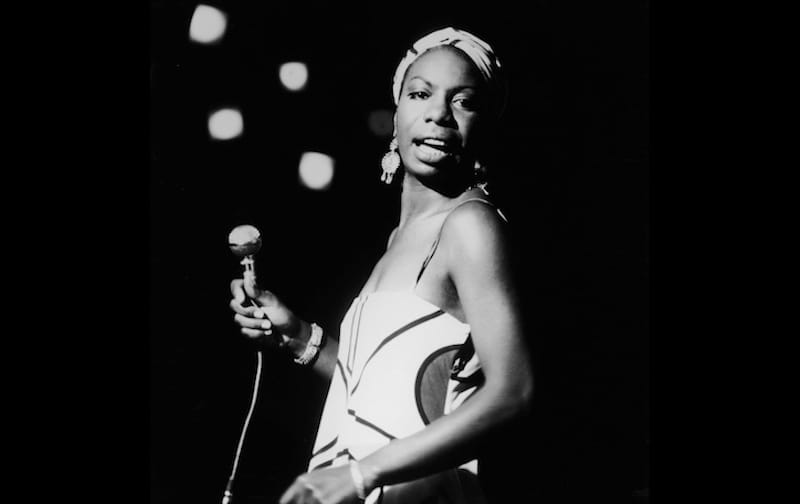
Thoughts:
As soon as Andy Stroud started to talk about Simone's physical violence about an hour into the film, I could feel my blood pressure begin to rise. Why does this motherfucker get a chance to tell us his side of the story? In an article for IndieWire, Tanya Steele says, "Imagine this: A documentary about Rihanna where Chris Brown gets to talk about Rihanna’s temperament. Where Brown admits to hitting Rihanna as if it was par for the course because she was a difficult personality." I don't like the idea of giving an abuser a platform to negate his or her abuse.
Garbus didn't conduct this interview with Stroud (that footage came from another project), but I still think its inclusion is problematic. The early sections, where he discusses his business relationship with Simone, are fine, but I just can't stomach his speculation about her mental state. The juxtaposition of his comments about her "downward spiral" and her diary entries about the regular beatings Stroud administered make me especially uneasy.
By cutting these elements together, Garbus seems to throw Simone's own recollections into question. It's as if she's saying we can't really trust Simone because of her apparent mental illness and that she's just as bad, if not worse, than Stroud. I'm sure this was not her intention, and that Garbus only wanted to present a rich picture of a complex person, but that's not how I initially interpreted this section of the film. Working with archival footage is tricky and in order for it to work as intended, the editing has to be perfect. In this case, it fell short and allowed Stroud's interviews too much power to shape the viewer's perception.
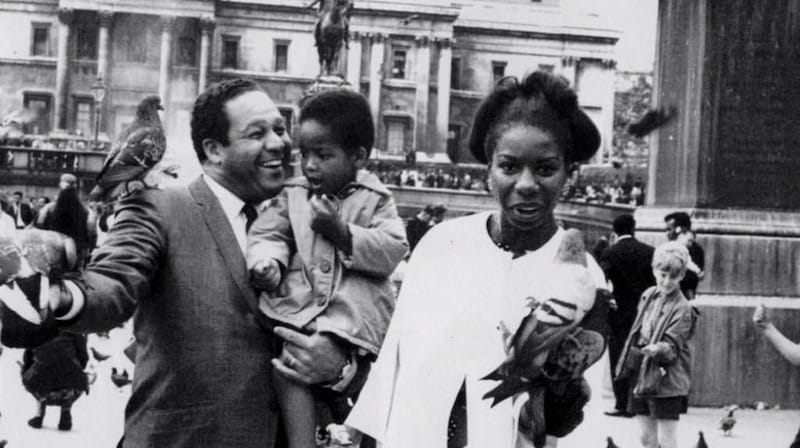
I do appreciate that we get to hear Lisa Simone Waymon Stroud talk about her parents, but again, some of what she says is framed in a problematic way. I highlighted the most troublesome sequence in my notes. It starts with a shot of Simone's diary entry where she wrote, "Andrew hit me last night (swollen lip). Of course it was what I need[ed] after so many days of depression. He actually thinks I want to be hit (he told me so)." Then, the screen fades to black and we see a photo of Simone, Stroud, and their daughter, who is a toddler, in a car. We then hear Lisa (I'm calling her by her first name because Simone Waymond Stroud is a mouthful) describe abuse she witnessed as a child:
"I remember sitting in the car between them and they were arguing about something, and I remember my father reaching across me, so it was like this (demonstrates the position), and backhanding her."
Then, we hear Stroud's voice, describing the same situation:
"We're going home in the car, I'm driving, and I slapped her. Blood spurted right over this eyebrow. She had, like, a one-inch cut from my ring, you know. We got her home and I clipped the skin together and I taped it ... and a week later, there wasn't even a scar."
Then, there's a cut to a photograph of Simone and Stroud sitting far apart from each other in a hotel room while Lisa's voiceover tells us, "I think they were both nuts. She stayed with him. She had this love affair with fire. That's like inviting the bull with the red cape, 'Just come on into my kitchen and let's see what we can do.' That's what she did."
As Lisa experienced their violence first-hand, I understand why she feels this way, but the film gives no caveats about her unique position as a child of parents with an abusive dynamic. Without any explanatory details or context about her later relationship with Simone, she comes off as someone who thinks there are instances where abuse is justified. Even if this is how Lisa feels, I think it's dangerous territory for Garbus to broach.
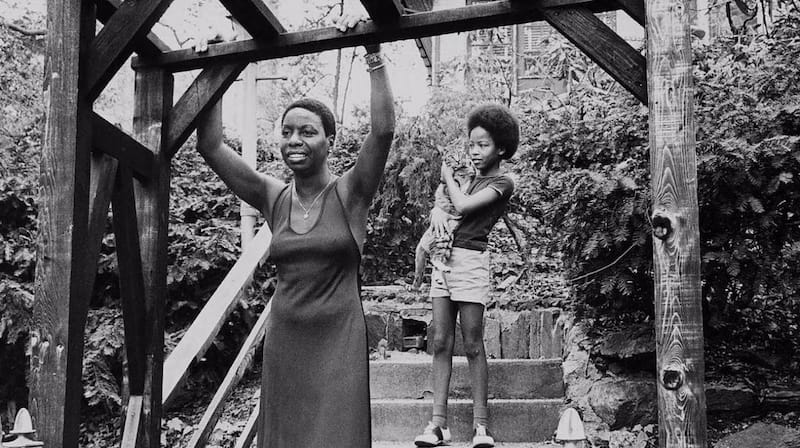
Later in the film, when Lisa talks about the abuse she suffered at the hands of her mother in Liberia, her earlier statements make more sense. When Simone started to abuse her, she left. She went to the US to live with her dad in New York and never looked back. Since she was able to leave a shitty situation, it makes sense to me that she would judge Simone for not doing the same. Additionally, it's not shocking that she might look back and feel satisfaction that her abuser was also forced to suffer. Unfortunately, Lisa's comments are presented without context in a way that makes them sound like sheer victim-blaming.
Toward the end of the film, when Simone's bipolar diagnosis is revealed, things start to feel a bit rushed. We find out she starts to take Trilafon and that it gives her a nervous tic and begins to affect her piano playing abilities. We learn about her small resurgence after the Chanel commercial featuring "My Baby Just Cares for Me." Mostly, though, life during her old age is skipped over and we're left at the end of the documentary with the feeling that Simone was a person who would never truly adapt to the world around her or find real happiness.
I'm glad that I watched this film because it contained some beautiful, rare performances and details I wasn't previously aware of, but it left me feeling hopelessly sad. Simone was undoubtedly a musical genius and an indelible part of the civil rights movement, but was she happy? I can't help but feel that had she been born later, in a time when modern medicine had evolved just slightly, she could have gotten the help that she needed sooner and enjoyed not only musical success, but rich, meaningful relationships that weren't mired with violence and isolation.
Stray observations:
- "Sometimes I sound like gravel, and sometimes I sound like coffee and cream." There are so many great Simone quotes in this doc that it's hard to keep track of them all.
- Imagine if you were in some random Atlantic City bar and stumbled across a Simone performance. Even though she wasn't famous at the time, I feel like that's something you'd remember and tell your grandchildren.
- I like the audio edit toward the beginning of everyone saying "Nina Simone."
- Did Bill Cosby drug Simone? This is immediately what popped into my head when I heard about her potential nervous breakdown before she performed on tour with him. I searched the Internet for more information, but all I could find was a Reddit thread where someone else makes the same speculation.
- This Simone look is totally iconic and one that I don't think anyone else could rock quite like her:
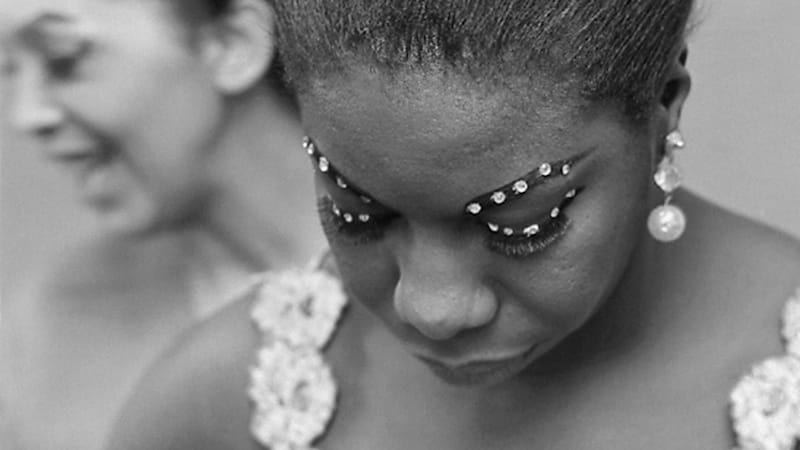
- Stanley Crouch calls Simone, "the patron saint of the rebellion," which sounds incredibly badass.
- I know I've already talked about this, but man... FUCK ANDY STROUD.

